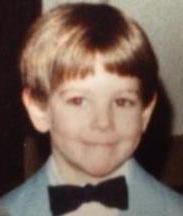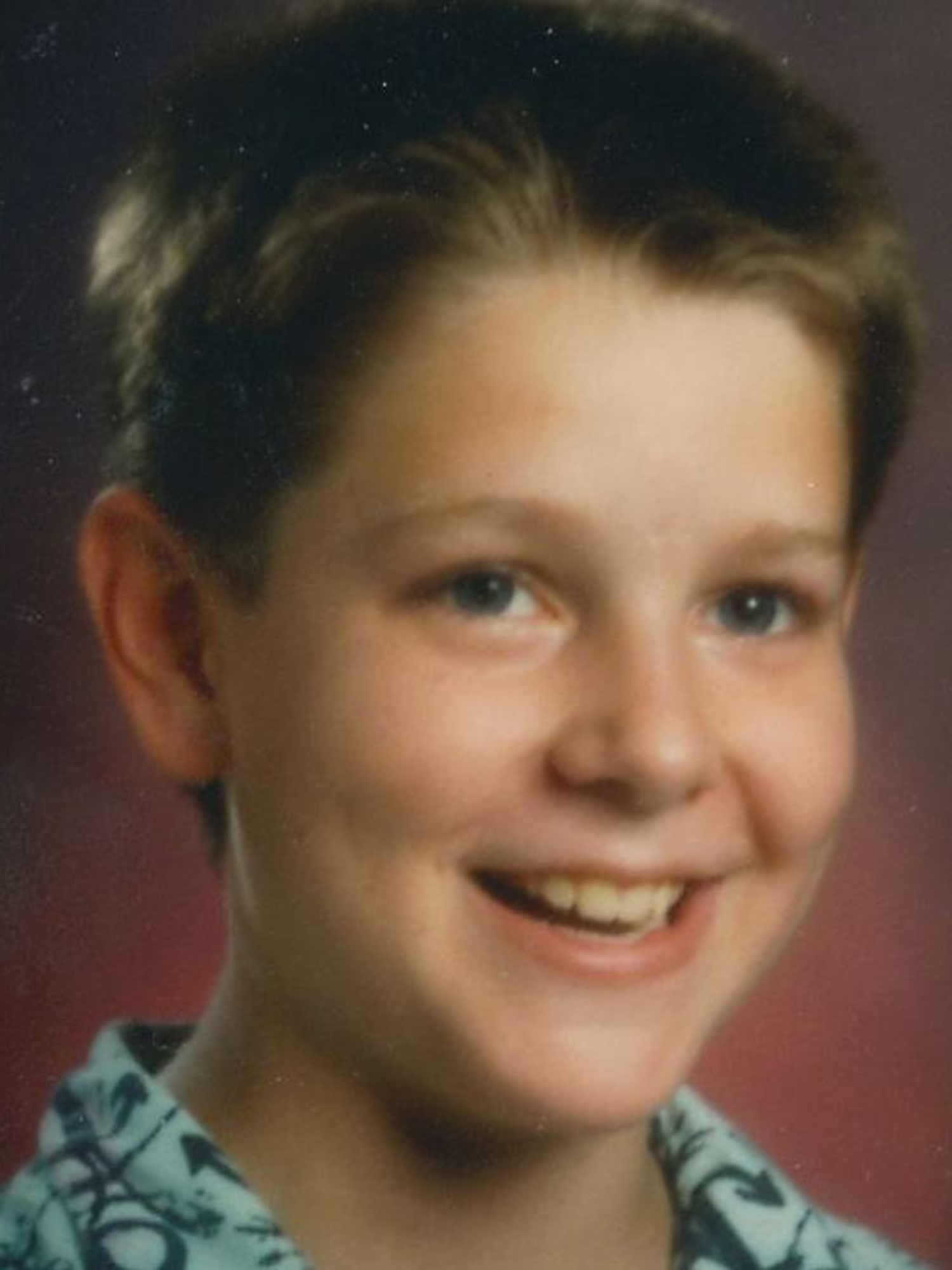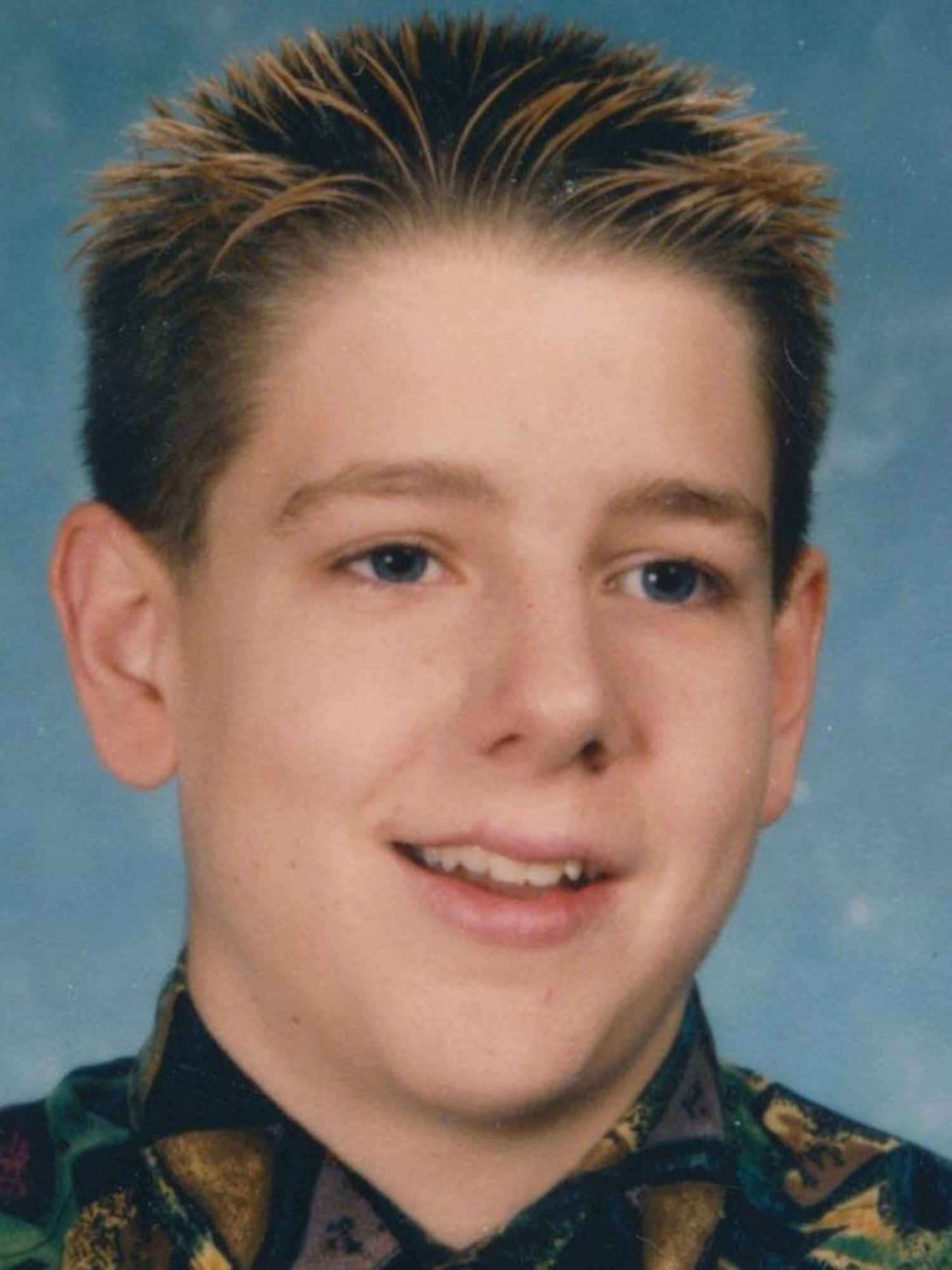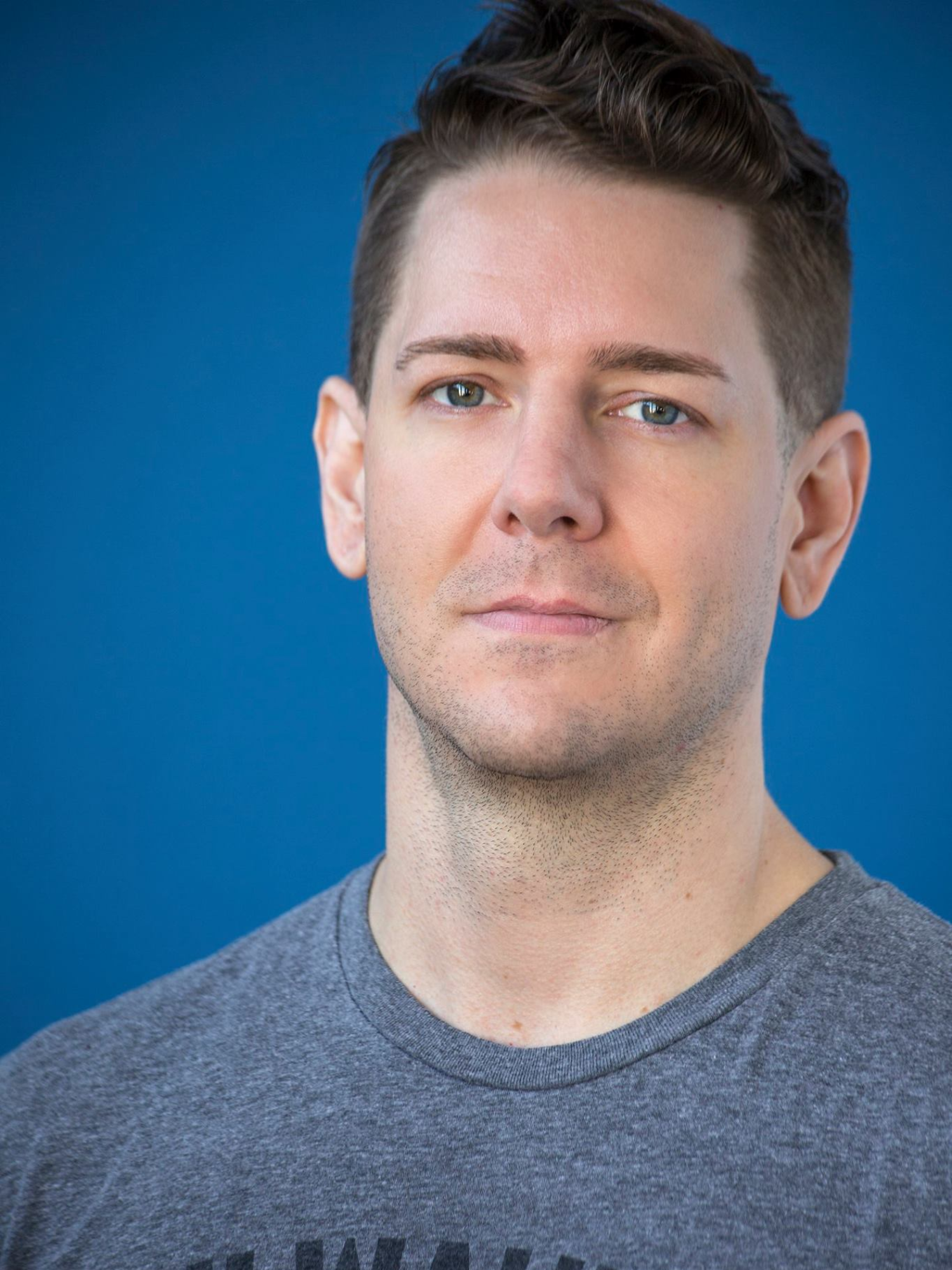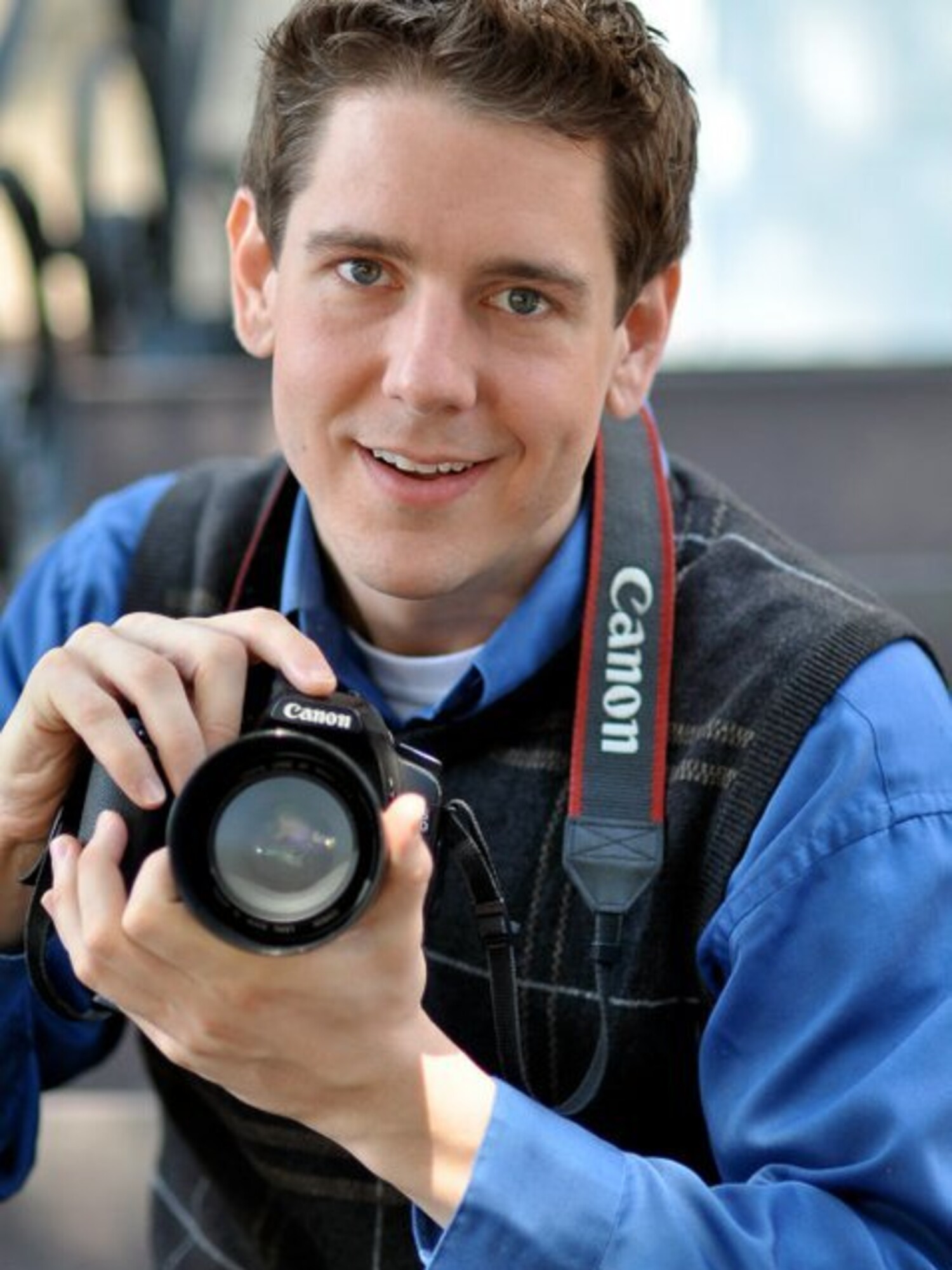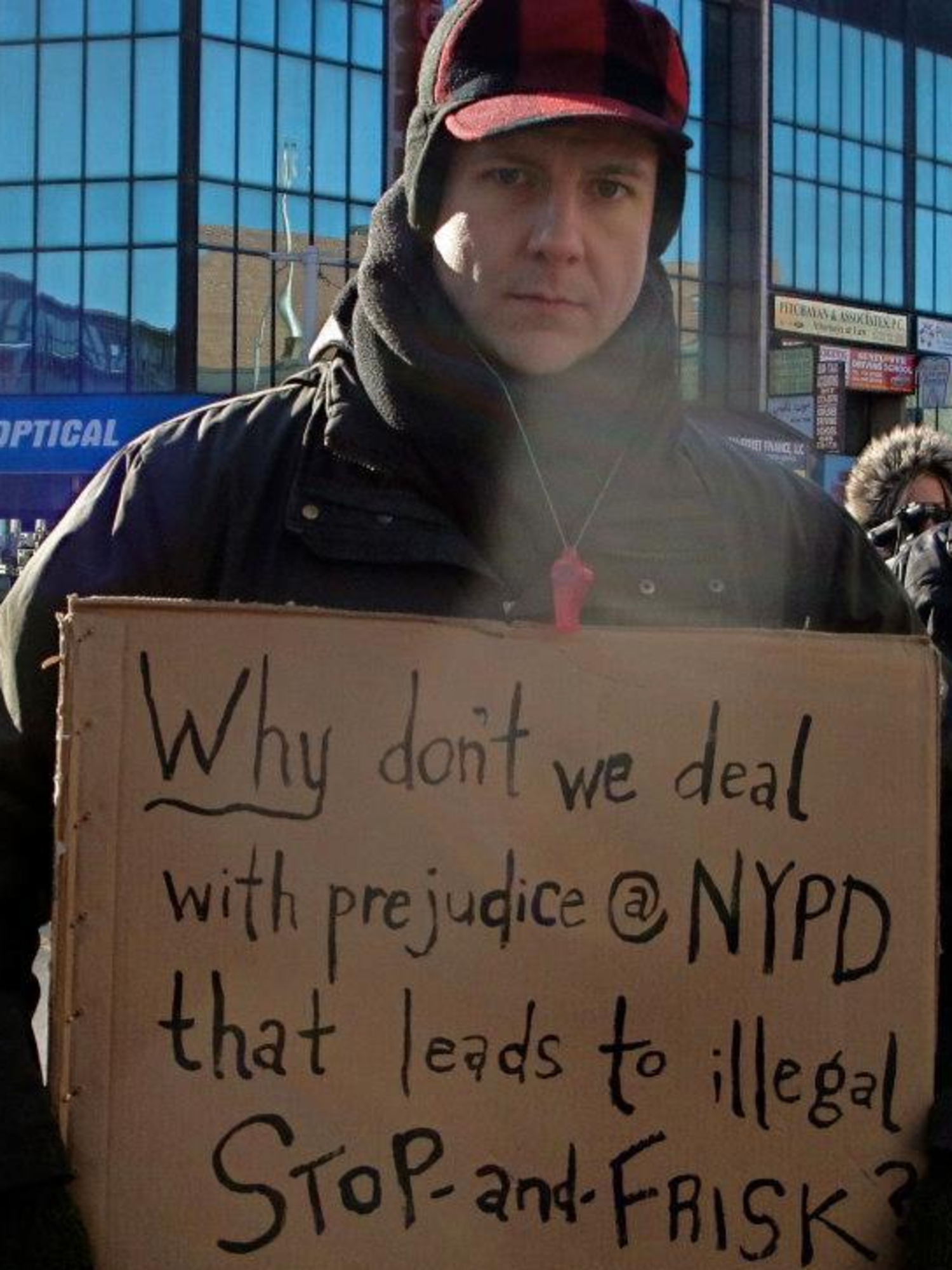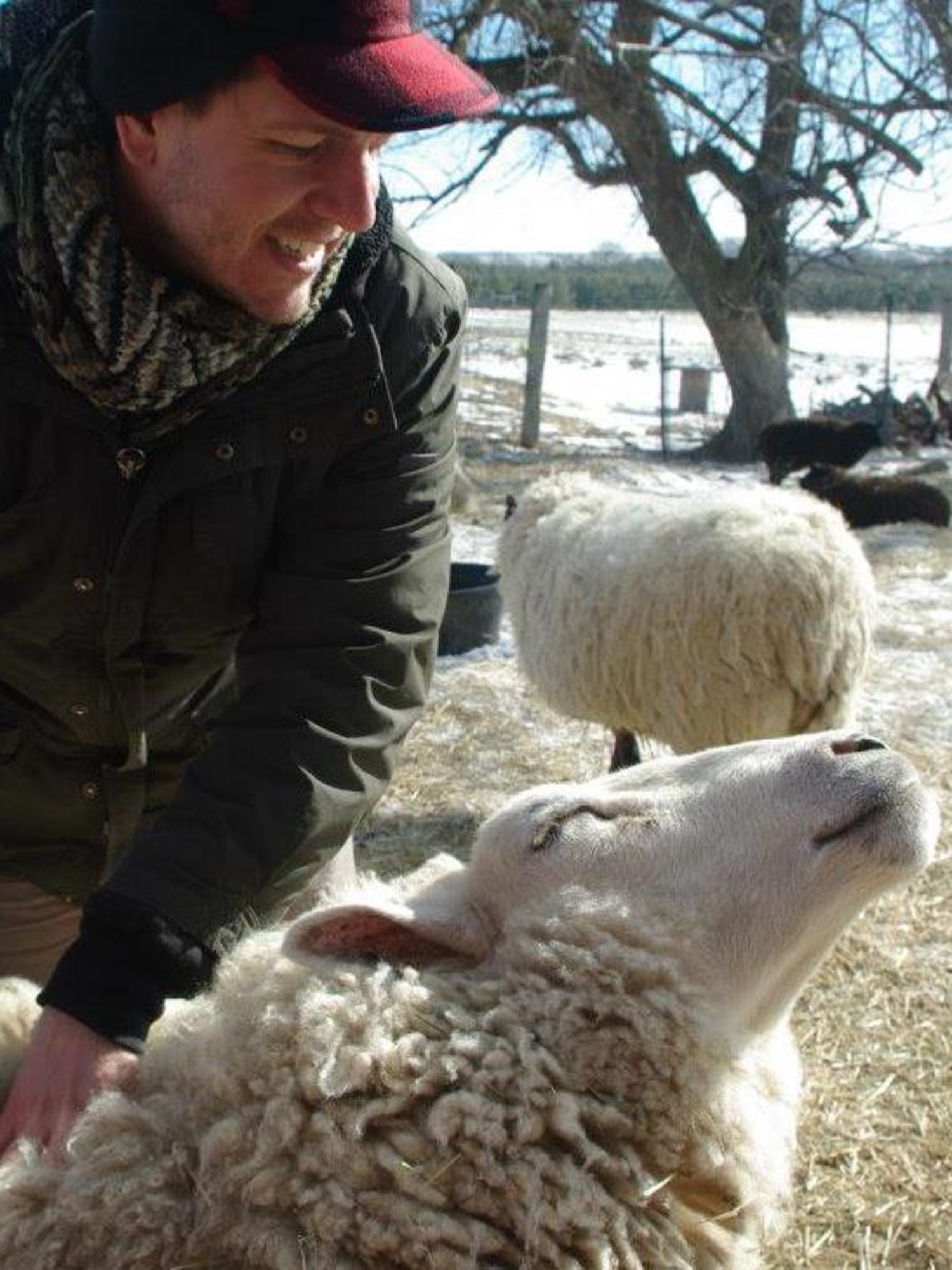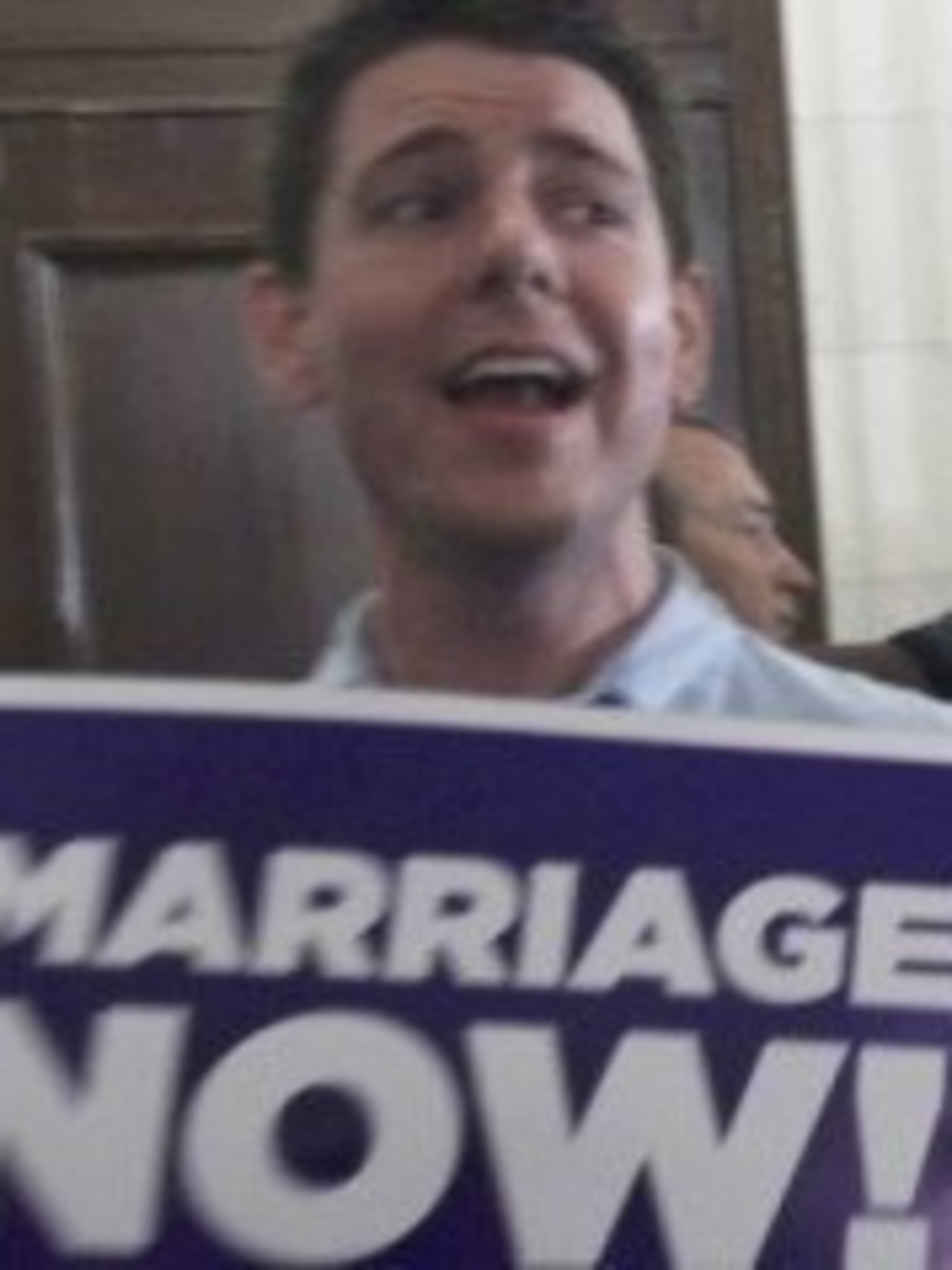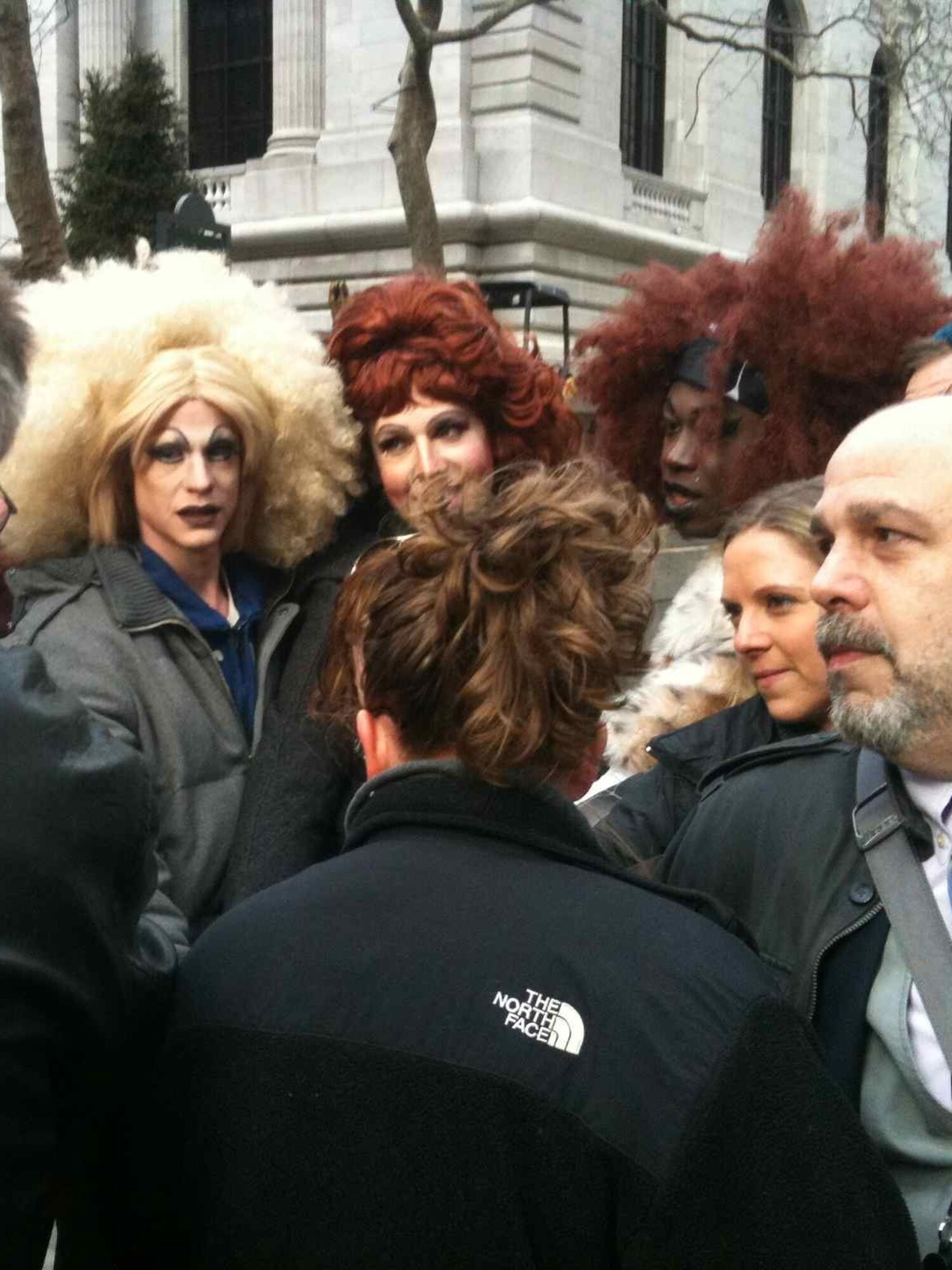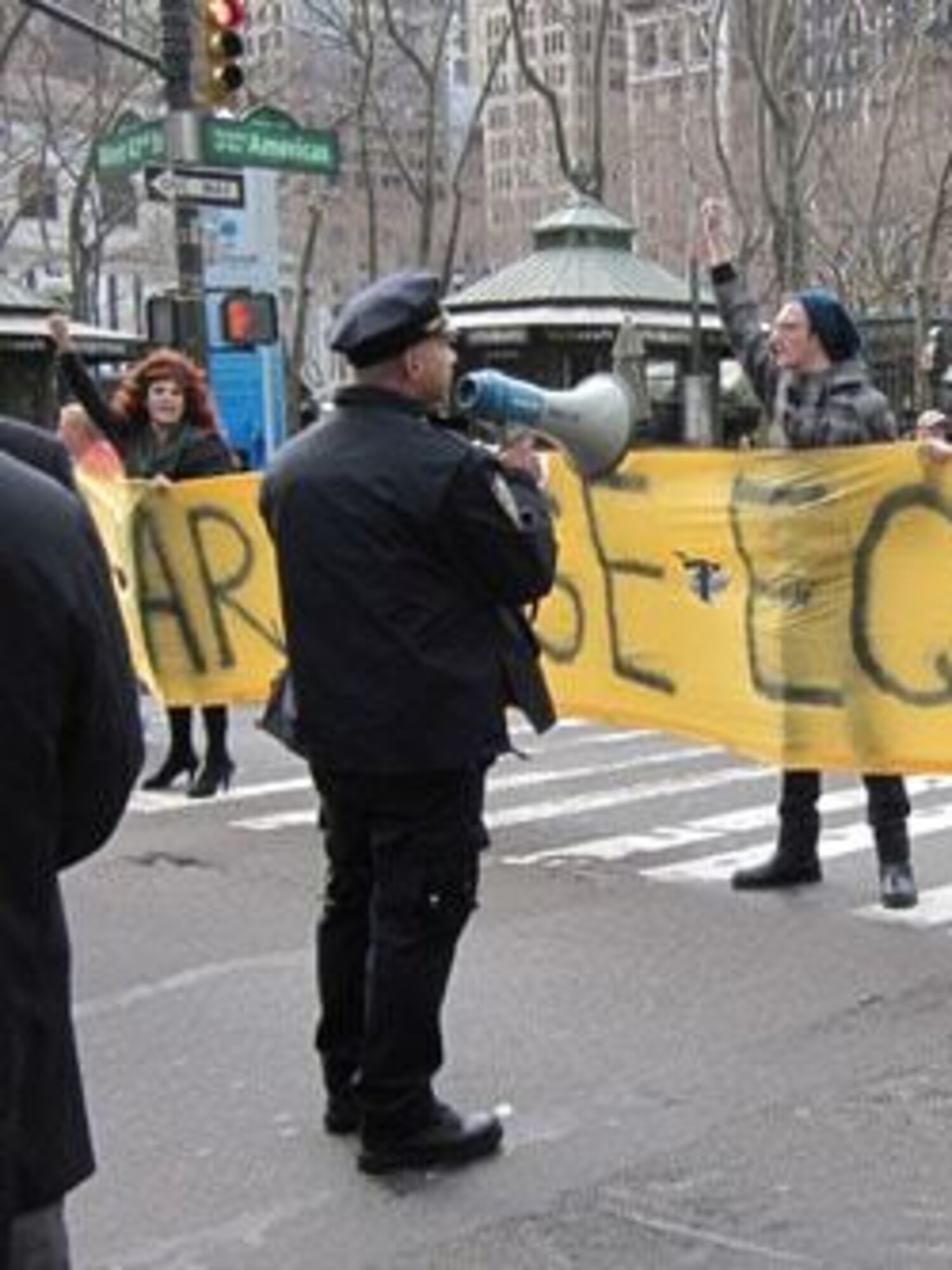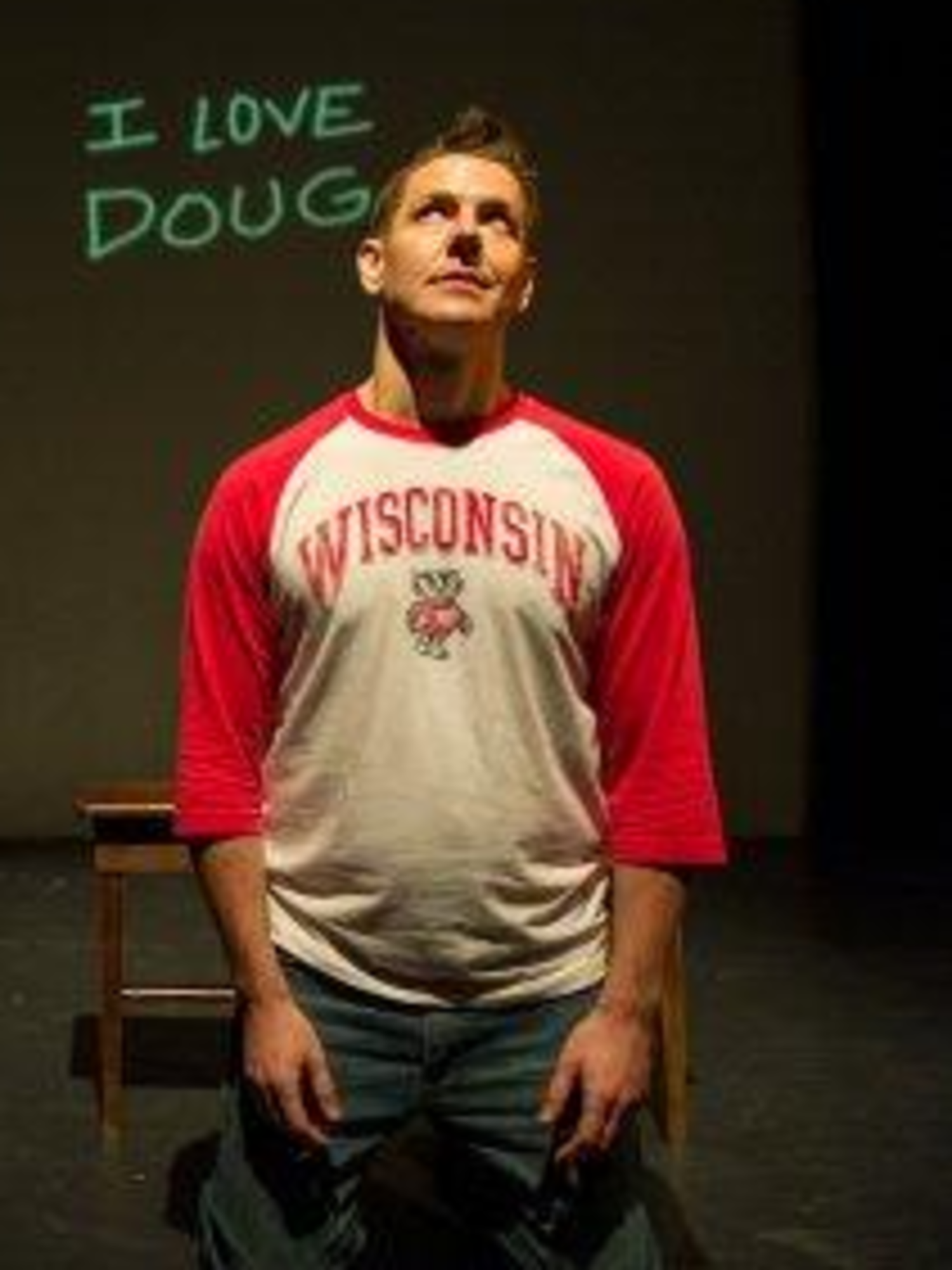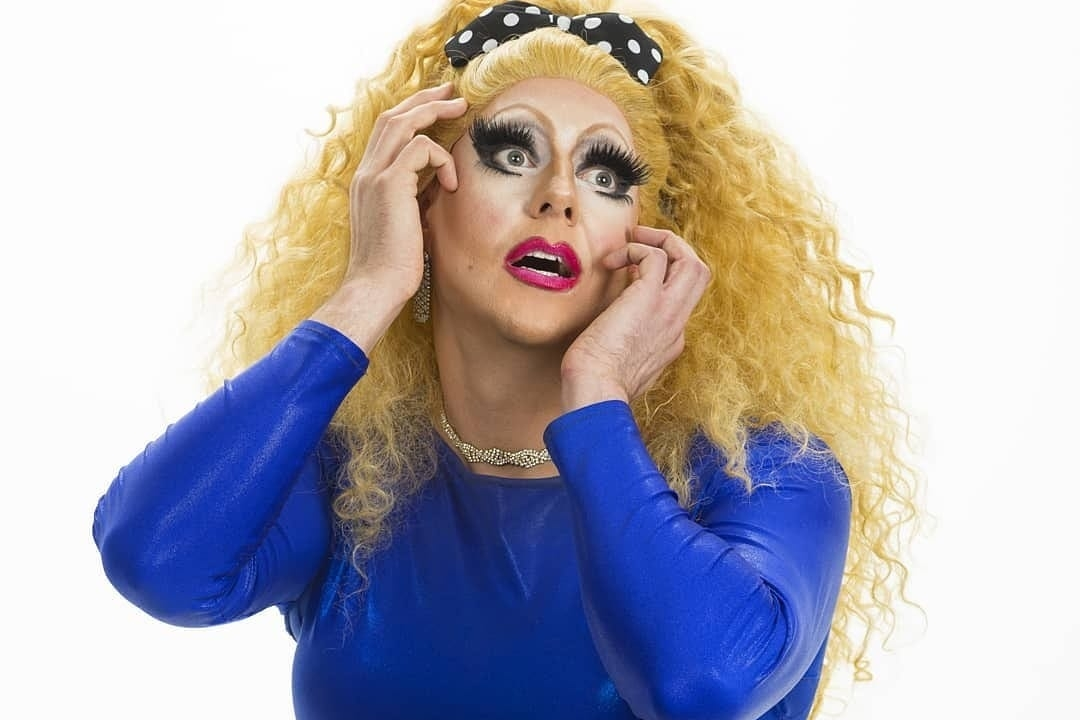
Honey LaBronx: an unstoppable force for social change

“It’s a drag queen’s responsibility to be political, vocal, and loud. And I decided I was going to be louder than all of them combined.”
Ben was born in Milwaukee and raised in Wauwatosa. His mother was the "Suzy" of Suzy’s Cream Cheesecakes, and his father’s family operated the Boulevard Inn for four generations.
The Boulevard Inn opened in 1946 at 4300 W. Lloyd Street near Washington Park. Albert and Marie Gaulke, Ben’s great-grandparents, opened the business, and his grandmother Joan and grandfather Werner took over the business in 1968. The restaurant moved to the Cudahy Tower (925 E. Wells St.) in 1992. The original Boulevard Inn building was destroyed by arson in 1993. Ten years later, the Boulevard Inn closed forever.
That’s where his parents met: his mother was a waitress and his father was a manager, and his grandparents were livid to think their son was dating a single, divorced mother. That was then, this is now.
“And now, I love to call her ‘Suzy, the pillar of the community,’” Ben laughed.
Teenage dreams
Ben came out to his closest friends when he was 13. That was extremely uncommon in 1992, and still uncommon today.
As a teenager, he was an early adopter of the Internet. He used Prodigy to connect with local BBS services, including Info Mode in Milwaukee. His name as Hinton, dedicated to author S.E. Hinton of “That Was Then, This is Now” and “The Outsiders,” While Info Mode was not specifically a queer site, it was very queer-friendly and created a space for people to be openly gay. That’s where Ben found many of his first gay friends while he was still in middle school.
“It’s incredible, looking back now, that my parents gave me so much space,” said Ben. “At 12-13 years old, I was making grown-up friends on the internet and meeting them in real life. Today, that might raise all kinds of questions, but I really appreciated knowing and socializing with other gay people.”
In eighth grade, Ben discovered America Online. He got involved with the local theater community, where he would meet a lot of gay people over the next few years. He went to Camp Anokijig in Plymouth, Wisconsin with some of his newfound friends. He remembers his first major crush, David, who was tall, dark and handsome beyond his years.
“Some people look like an adult at 15,” said Ben, “and David looked and behaved like someone who was 22. I knew I had to find a way to connect with him. I knew he was very into poetry, and so we exchanged poetry. Then we exchanged email addresses so we could keep in touch. I came out to him, he concluded that he was gay too, and we started dating over email. Yes, we were 14 and 15, but we had an understanding that we wanted to be a couple.
“He lived in Palm Beach, and my great-grandmother lived in West Palm Beach, so I got to see him at Christmas,” said Ben. “My parents let me stay at his house, thinking him to be just a friend from camp, but they quickly realized we were a couple. They allowed us to keep seeing each other.”
“I wish I could say my parents were cool about it,” said Ben, “but they really weren’t at first, even though they’d already had their own introductions to queerness. My father had a gay brother; my mother had a nephew who is gay. When they recognized I was gay, they said it’s time to talk to Ben about this. It felt more like an interrogation than a conversation. My father said, ‘I have reason to believe you might be gay,’ and my mother just started bawling. And I’m sitting here thinking, how did you guys not know? And why is this such a big, terrible thing? My dad said, ‘it’s not the best thing I would choose for you, but it’s not the worst.’”
“And then, if you can believe it, we had to go through it all over again a couple weeks later,” said Ben. “Now, the conversation was, OK, aside from being gay, we also have reason to suspect that David is your boyfriend. They said – and to this day I don’t believe them – that they were seeing a therapist to guide them through this process. The therapist told them to allow us to continue writing each other, but we weren’t allowed to see each other or talk on the phone again. I think even my parents realized how ridiculous that was.”
David graduated at 16 and moved to Wisconsin to attend UW-Milwaukee. He kept reminding Ben that he was the one and only reason he was moving to Wisconsin – and that put a lot of weight on the relationship.
“Wow, not too much pressure on a 15-year-old, right?” said Ben. “We were children who found ourselves in adult circumstances. Things went from bad to worse and eventually we broke up.”
Ben started dating again. He met Michael on AOL.
“I knew he was someone special right away,” said Ben. “His first message to me said ‘when they talk about being in the closet, I’m not just in the closet. I’m hiding out in the basement with the lights off.’ I was the first person he’d ever really talked to about being gay. After corresponding a while, we met in person in December 1994. We were together for four years. My family embraced and welcomed him as an inevitable part of the family.”
Ben started to realize he’d been in relationships – except for two shorts weeks – throughout all of high school. He started to think about moving to New York City and becoming a Broadway actor. And he knew that he needed to do these things alone.
“It was really difficult breaking up,” said Ben, “but I needed to figure out who I was as a grown-up individual outside of any relationship.”
Making a name for himself
Ben developed a passion for photography. He took a high school course, worked at a Walgreens photo lab, and built a darkroom in his parents’ basement. By the time he was 15, he was doing headshots for actors and community theater productions.
“If you needed headshots in Milwaukee in 1994, there were two places to get them: a woman named Deone Jahnke or me, working out of my basement studio.”
Four years after moving to New York, Ben was hired as the photographer for Playbill. One of his first projects was the Playbill Broadway Yearbook.
“My job was photographing everyone on Broadway who was not an actor,” explained Ben. “We already had photos of actors on file. My job was to photograph the publicists, which was great, because they’d be my first contact. And then I went backstage at all the shows and photographed everyone from the wardrobe people to the orchestra, to the ushers, to the stage managers. Basically, everyone who worked in each theater. I quicky became a well-known person within this community.”
“One of my favorite things was telling my Dad,” said Ben. “Andrea McArdle, the original Annie, knows who I am now. She holds her arms out and hugs me when she sees me in person. Donna McKechnie, a Tony Award winning performer, called me at home asking to use of my photos. Instead, we did a whole new set of headshots, and she loved it so much she came back again a few years later. Aren’t you proud of your son?”
Although the Playbill job was rewarding, it wasn’t entirely exclusive. When another company called, Ben seized the opportunity.
“I became the photographer for Broadway World,” said Ben, “and my job became covering opening nights, curtain calls, press events, celebrations, and more.”
“It’s ironic, right? I wanted to be a Broadway actor. Sometimes I consider myself a failed, should-have-been, and that haunts me. But if someone else had inherited my life, could they have done anything more with these opportunities? There was a time when I was a fixture on Broadway. Everyone was used to seeing my face. I really could have parlayed that into a musical theater career. But something always keeps me from doing that.”
I was finally living in New York, in my own apartment, and I could have guys over and smoke weed. There were no strings on me anymore. I could do whatever I wanted. So of course, I got into drugs and alcohol. It’s a rite of passage for us all, I guess, but I hit it a little harder than I expected to.
Survival mode
“I was waiting tables at this little place, and making enough money to live on my own,” said Ben. “And then September 11 happened. I went from making $500-$600 a week to maybe $200 a week. My rent was $1200 a month, so there’s no way I could pay it. And I remember – and maybe this is a Wisconsin thing – feeling so optimistic and trusting and hopeful, so Kumbaya, about everything. If I won the lottery, the first thing I would do is make sure everyone around me has their needs met. Peace and happiness happen when everyone’s being taken care of.”
“My manager asked how I was doing, and I said, not great. I don’t know what I’m going to do. And he said, “well, don’t worry, buddy – it will be okay.” I latched onto those words for a second because I thought he meant it. I thought he meant; I’ve got you. You don’t have to tip me out anymore. At the end of our shifts, the manager always demanded his cut, even though it was illegal in New York City to require that. And would you believe, at the end of that shift, he still asked for his cut. I was like JFC.”
“I got the message loud and clear: no one is going to take care of me but me. I’m 21, I’m young, I’m cute, and I live in New York City. And I also love sex. It does not take a genius to figure out what I did next.
“I went into sex work in December 2001. This was long before Only Fans, this was back in the day when people like Frenchie Davis were shamed and disqualified from American Idol for doing a sex tape. Nowadays, Kim Kardashian is famous because of it. Nowadays, sex work is legitimate work. But that sure wasn’t the case back then.”
“I created an AOL account for ‘Rent Boy Blue,” and I would just sit in chat rooms until someone solicited me. And this became my way of making money from late 2001 until late 2004. When I started dating someone seriously, I knew it was time to quit the escort work. But for a good three or four years, that’s how I financed professional photo equipment and a studio. My experiences inspired me to write a play about that era of my life.”
Ben found himself dabbling with drugs and alcohol, which became his go-to method for soothing nerves before a call. In summer 2002, he visited Provincetown with friends, looking for “whatever kind of trouble he could get into.” Trouble found him in the form of crystal meth.
“I started dating a dealer,” said Ben, “and for about 10 weeks, we were a week on, a week off, because it was long distance. He lived in Rhode Island, so I’d be up there, smoking meth at a trap house for a week at a time. And I don’t just mean meth. I remember one night, that can only be referred to as a 16-hour Boogie Nights party, where we’re on crystal meth, ecstasy, ketamine and GHB.”
“And this is how you know you’re an addict: when the dealer starts passing out because they took too much, and you’re the one shaking them awake because you want more. I was very Kirsten Dunst in Interview with the Vampire. There was a point where he asked me if I knew the street value of all the drugs I just did. He informed me it was over $10,000. I didn’t care. I just remember thinking what an amazing feeling it was.”
Ben didn’t realize crystal meth had a withdrawal period – until it hit. He also didn’t realize the drug and the dealer were one and the same: they were both part of this relationship.
“If you’ve ever thought about trying meth, please know you’re missing out on absolutely nothing. It’s like you wanted to experience life in the most vivid, saturated color. So, you crank up the saturation and the color on your TV, just to experience that moment, but now you’ve broken the TV. The world is now black and white forever. The next couple of nights or weeks would be miserable. Well, it’s kind of like doing that with your brain chemistry. All the feelgood happy chemicals that keep you sane and alive and happy get used up, all at once, and for weeks and months, there is nothing.”
Embracing the activist within
Before marriage equality, Bob would gather with other drag queens in Times Square from noon to four for mock wedding protests on Saturdays. Ben joined these protests, and remembers being overwhelmed with an empowering feeling.
“We’d pull off crowds of 200 or more,” said Ben. “We were surrounded by people from all over the world. People wanted photos, and we’d hand out our contact information and ask people to follow us on Facebook and tag us and our message in their posts. And we’d get all sorts of people to realize that this is not an US people, this is a society problem. This is everyone’s problem.”
Queer Rising learned what Bob was doing – and invited them to crank it up a notch.
“I came home one day, and Bob said, ‘hey how would you like to get arrested?’ And my immediate response was, ‘sure, I’d love to.’ Queer Rising had asked us to participate in an arrestable act of civil disobedience to raise awareness of marriage inequality. At the time, Queer Rising was run by Jake Goodman, another gay man from Milwaukee. So, it was me, Bob, Jake, Frosty Flakes, Eugene and Tom. Bob and I woke up at 6 a.m., got into full drag, and went down to the McDonalds on Sixth Avenue. At 8 a.m., we ran across the street with a huge banner saying DEMAND MARRIAGE EQUALITY and stopped traffic in all directions. I’ll be honest in saying I didn’t understand what I was doing. I didn’t understand why blocking traffic was important or how I could be useful. I didn’t even really understand politics. But I trusted Bob, because he’s my moral compass on most things, and I trust his judgement.”
“Before I knew it, we were getting arrested, being thrown in the police wagon, and taken down to jail. Before I knew it, here’s six homosexuals in an actual jail cell, three of us in full drag, under actual arrest, and we’re doing the Cell Block Tango.”
The following month, they hosted a mass drag queen wedding at Grand Central Terminal. The place was surrounded by police at every entrance and exit. Somehow, the police had infiltrated their channels, and knew what was being planned before they got there. The group was warned, “don’t do this or you’ll get arrested; if we tell you to stop, you need to stop.”
“So, we do this wedding, and it was my turn to speak and have my moment, when they tell us to disband. We start to disband, when I realize that the wedding was just a cover for the real event. Activists with helium balloons unleashed a gigantic banner that said ‘close the books on homophobia’ with the phone numbers of the mayor and governor. The cops are chasing the banner, trying to jump up and catch it, and looking ridiculous. And for months afterwards, the balloons were still up on the ceiling of Grand Central Station. I could not have been prouder.”
Ben thought they’d really taught the police a lesson. But the protest wasn’t over yet. Bob started leading a march formation out into the streets. Since all the police had been diverted to Grand Central, there was no one to stop the march from obstructing traffic.
“We had traffic blocked for 15 minutes,” said Ben, “and everyone was so mad. If you don’t understand the purpose of civil disobedience, listen, I get that we were inconveniencing people, and we don’t really want to inconvenience people. And the ones we’re inconveniencing are not necessarily the ones standing in the way of our rights. But here we are, without our rights, and everyone else is just driving along as if this is perfectly normal. Like, until you get out of our way, we’re not getting out of yours, and you’re going to have to deal with us. We’re going to do this monthly. We’re going to force the issue. And by that summer, we were finally bringing marriage equality to a vote.”
Ben remembers everyone driving up to Albany and piling into hotel rooms. They arrived on a Wednesday, the third day of the proceedings. He thought it would be a quick vote, so he didn’t even pack a change of clothes. The vote took six full days, but he was in the Senate galley on Friday when the vote came in: New York now had marriage equality.
“My clothes smelled as laundry fresh on day three as they did on day one, despite not even packing deodorant!”
“I remember being at XES Lounge one day, and the owner said he learned about the marriage equality vote from my Facebook page. Every step of the way, I was posting updates: they’re in chambers, they’re taking a recess, they’re putting in the vote. And when I posted that we won, the entire bar erupted into applause and cheers. Moments like this helped me realize that, as a queer person, I have a responsibility, and as a drag queen, I have a platform.”
“I knew how to recognize the truth when I heard it,” said Ben. “I knew how to recognize with whom to align myself. There are some very smart queer people who know more about politics than I ever will. If I hitch my wagon to theirs, I’ll get where I want to go, because their interests align with mine. So what if my body is on the line, getting in the way of vehicles? This work matters.”
“I don’t know if it’s being 45, or it being 2024, or a combination of both,” said Ben, “but I would be way too terrified to do civil disobedience like we did back then. I am so glad I did it when I was young. My activism takes different forms now.”
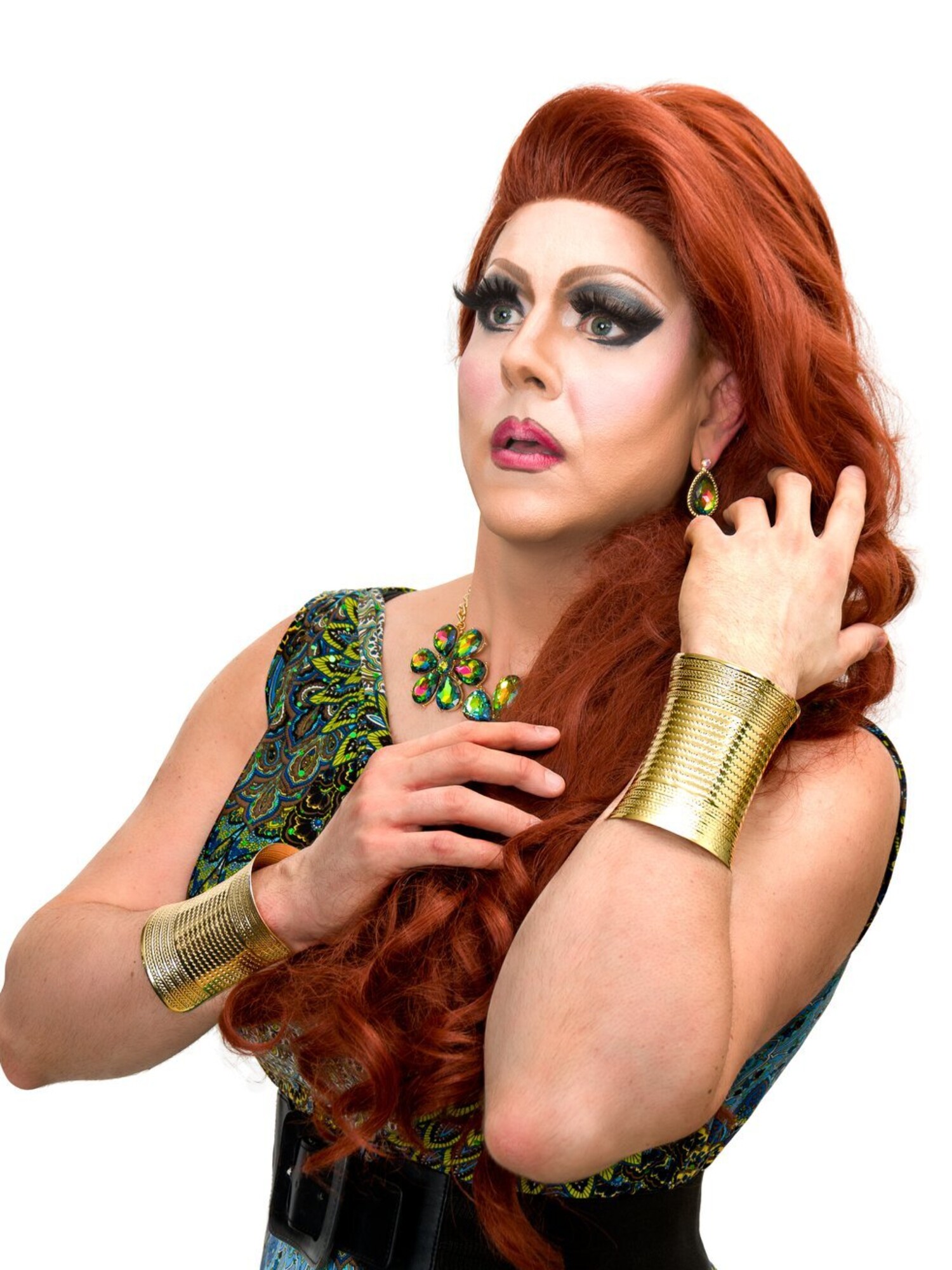 Honey LaBronx
Honey LaBronx
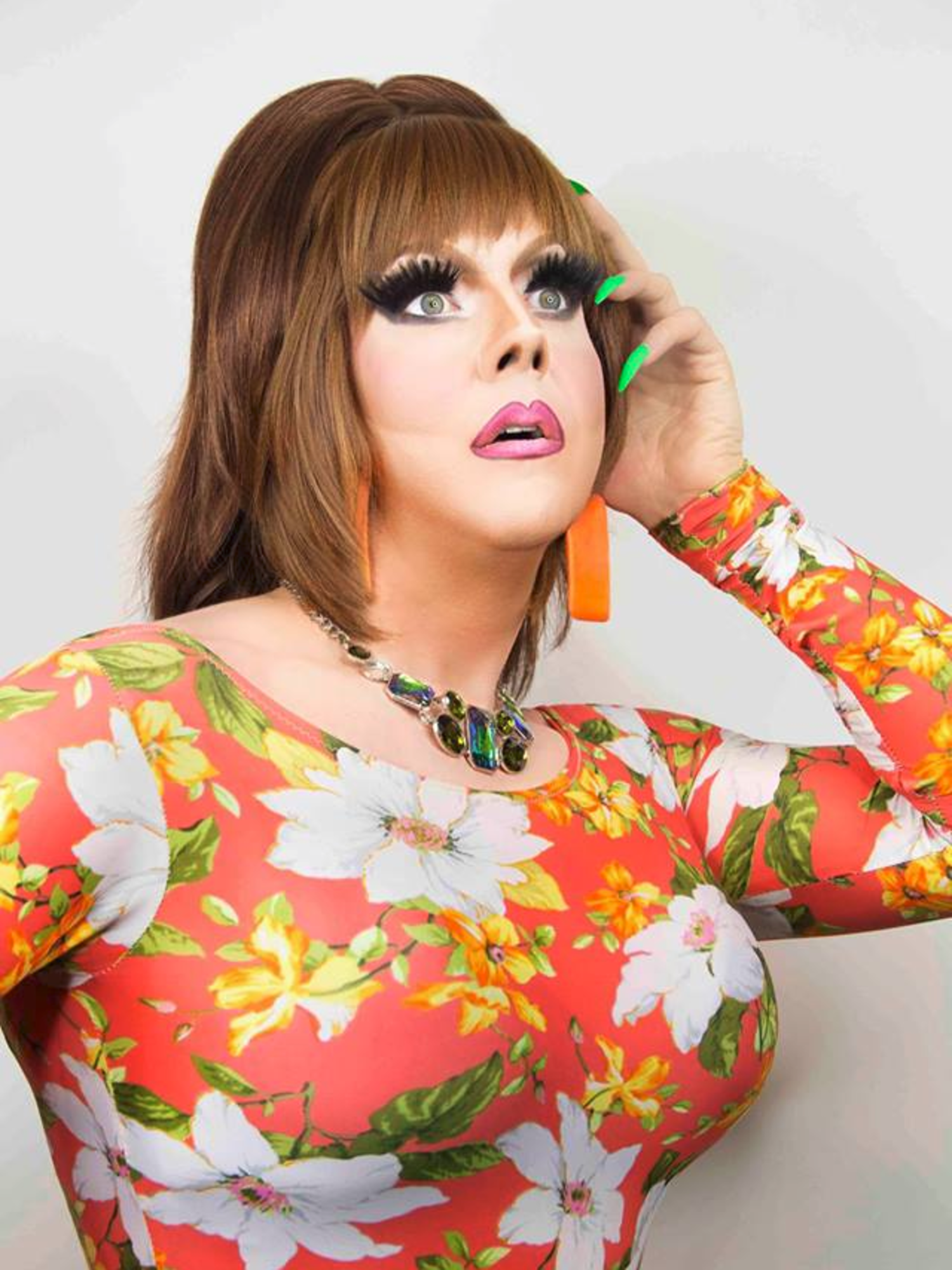 Honey LaBronx
Honey LaBronx
Honey goes global
Eventually, Honey LaBronx found herself working at Lucky Cheng’s in Times Square. After two decades in the East Village, Hayne Suthon’s all-drag dining destination at 24 1st Avenue – mainstream famous for its 1998 appearance in Sex & The City – decided to go big.
“That was an incredible experience that could never happen again,” said Ben. “Bob and I worked alongside Thorgy Thor and Laverne Cox, who used to perform lap dances before the shows.”
The move was essential to grow the Lucky Cheng’s brand, and the new location at 240 W. 52nd St. attracted stronger theatrical and tourist crowds. Unfortunately, Suthon passed away of breast cancer in 2014, and the Times Square location closed in her wake. Employees believe it would still be open today if she was alive to lead it. After pop-up locations on the Lower East Side, Hell’s Kitchen, and the Theater District, Lucky Cheng’s is now serving drag brunches at the Laurie Beechman Theater.
After working at Lucky Cheng’s, Ben considered his own show. The only question: could he do it alone?
“Imagine having Bob the Drag Queen as your roommate and drag mother. Every Monday night you’re seeing her on stage, and comparison is the thief of joy, right? There was a long time where I thought, well, I could never do what Bob does. And I made that true by speaking it into existence.”
“So, I was offered a show, and I asked my drag sister Miz Cracker to do it with me. It was called Titties! And that was the best name for a drag show ever. But the show was on the Lower East Side, and there was no audience down there, maybe eight people at most. It was a bust! I had to hide behind Miz Cracker because she was so quick on the microphone. Eventually, I asked her how she got so good. How was she so quick? And she said, hanging out with you and Bob, I had to learn how to keep up with you. Here’s someone who surpassed me, because they were inspired by me.”
In June 2017, a cabaret artist pitched Honey on the idea of a fundraiser show. He explained that 50/50 shows, which go half to charity and half to earnings, were the way to regular, ongoing, successful shows.
“The Madison Vegan Fest was considering hiring me to host and emcee, but they were really old school and frankly homophobic,” said Ben. “Does he have to do it in drag? Can’t he do it as himself? And I’m thinking, I’m not some goddamn game show host. I’m not going to take the stage and command an audience as myself. That’s not who I am.”
Instead, Ben hosted a festival after party at Five Nightclub. He took out a full-page ad in their program, and raised money for the people who wouldn’t hire him. He was surprised when they sent him a contract, offering to hire him under one condition: no drag.
“I needed the money at the time, but it felt better to turn it down,” said Ben. “I was so nervous because this was my first fundraiser. It reminded me of the 1995 Stonewall movie, where a trans woman and her boyfriend get thrown out of a restaurant and takes all these dollar bills and throws them at the person. There’s something so powerful about throwing money at people who don’t expect it from you.”
At the last minute, Ben realized he could be raising money for animal rights organizations instead. This upset the festival, because they were no longer the beneficiary, but he felt they’d only obstructed his work, not helped in any way.
Ben remembers his PrideFest performances as “amateur” and “not great.” He found it difficult to do a 60-minute set when he had no one to riff off and no castmate to tap out. He knew he needed new material, but instead, he just went out on stage without it.
“I don’t know what gave me the confidence right out of the gate,” said Ben. “Maybe the hate crime Alexis Michelle painted on my face?”
Rather than running out of material or time, Ben only used half his content and left them wanting more. And that’s the moment he realized this was something he could do. He could hold an audience’s attention alone on stage for 60-90 minutes.
“It was shocking to me when I’d perform at Hamburger Mary’s in Milwaukee, and they’d say you’re doing four numbers, so you’ll need four wigs and four outfits,” said Ben. “I would say, no, I’m going to do things my way and leave an entertained audience.”
“I really felt like I cut my teeth in New York City drag with some of the best of the best,” said Ben, “and it was that Madison show where I realized I can do this job.”
When Ben came home for his 20th high school reunion, he decided to do a local show one day later. The performance, held at Red Dot Tosa, was the highlight of his trip.
“The turnout was incredible. I never expected that many people to show up. I never thought the show could go as smoothly as it did. If I ever do two numbers back-to-back on stage, it means I’m nervous and I don’t know what to do or say next. I recognized that moment at Red Dot. But that show made me realize all I have to do is keep myself talking. As long as I’m talking, I’m in control of the show. And that was the show that made me realize that.”
Ben returned to Wisconsin in December 2017. He was still self-employed as a headshot photographer and theater photographer. Instead of doing another show, he decided to do a drag tour: Minneapolis, Madison, Milwaukee, Chicago, and Ypsilanti, Michigan. He did five shows in 10 days, and all were spectacular events. Since he exceeded his profit expectations, he decided to keep the business model going. He was on tour for the next two years: 111 shows in 73 cities in five countries that raised $44,000 to benefit 148 different organizations.
“I organized these tours with five- or six-days’ notice,” said Ben, “and by that, I mean five or six days from ‘let’s do a show’ to ‘thank you, good night.’ I got really, good at throwing together a last-minute tour. But I was only making money when I was not in New York. I was living my life on the road, and I would go broke and get depressed whenever I got home. I needed a break. I needed to find some way to stay home for 2-3 months and not worry about money.”
That’s exactly what happened. The pandemic hit – and drag shows were shut down all over America. Ben had time to enjoy a beautiful new apartment, take a near-total break from drag, and set up a new in-home portrait studio. He took a new, remote position at a finance company to maintain his income and insurance during the COVID crisis. He did a few virtual drag shows and cooking demos – but not many.
“There was no way I was going on the road, because nobody was masking,” said Ben. “I didn’t even want to leave my apartment. I remember being in line for the first COVID vaccine, and someone messaged me on Grindr who was also in line. They suggested that we celebrate our vaccines by hooking up after the shots. And I was like, are you kidding me? Do you really think you’re immune the second you get the shot?”
“I’ve had COVID twice ,and I do not want it again,” said Ben. “The idea of long COVID terrifies me, as someone who struggled so much with ADHD. I’ve only recently stopped masking everywhere because my favorite mask broke.”
“The idea of getting back on stage, in front of unmasked audiences, scares me at the end of the day, so I’m avoiding that as long as I can.”
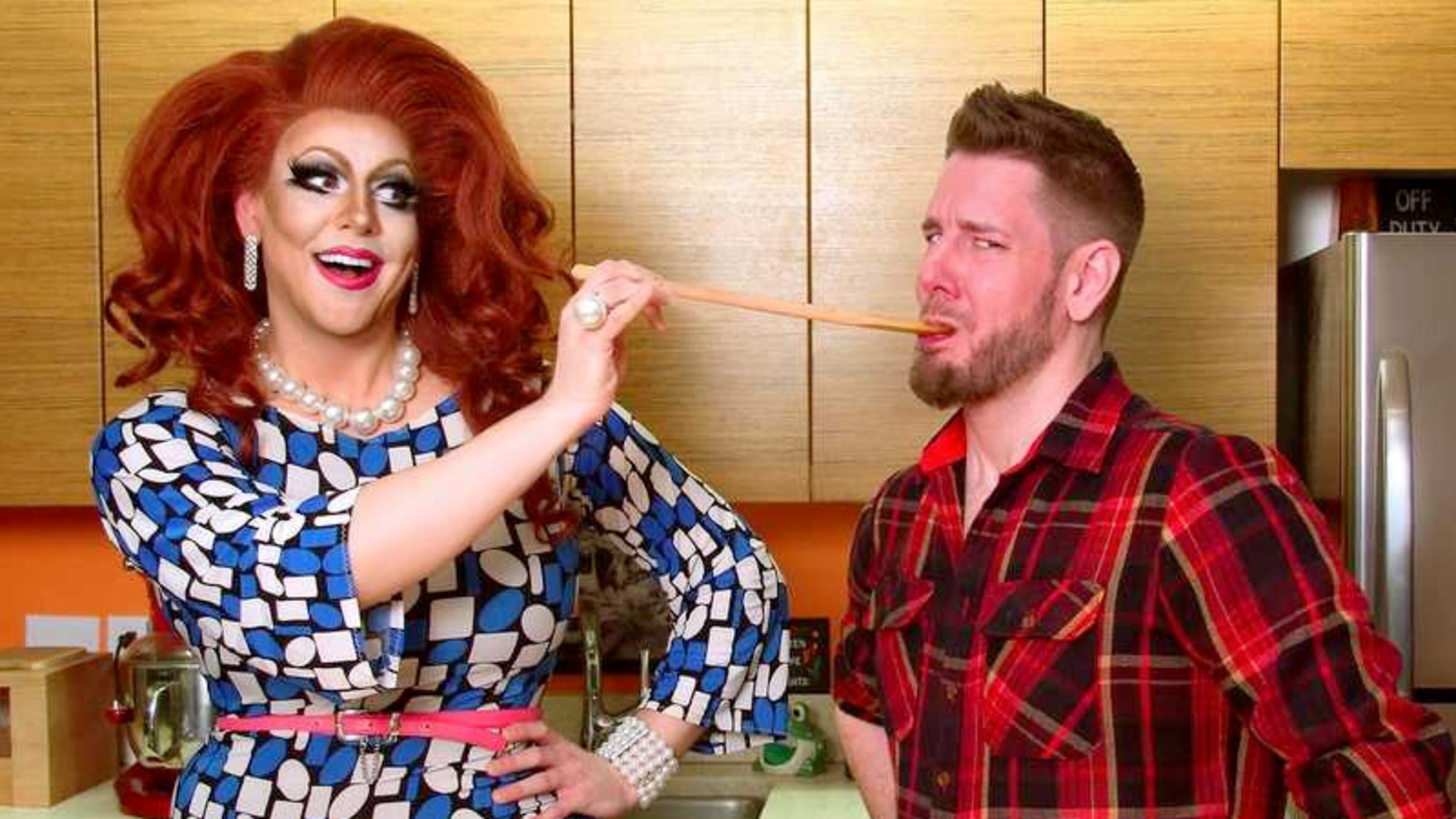 Honey LaBronx, Vegan Drag Queen
Honey LaBronx, Vegan Drag Queen
Reflecting on rights and wrongs
Ben was raised in a very conservative household, listening to Mark Belling, Dr. Laura Schlesinger, and Rush Limbaugh on the radio. He remembers heading down to Summerfest in the family van and passing through the Third Ward. When they’d approach the M&M Club (124 N. Water St.,) the comments would start coming. He’d hear the same comments when riding through the Underwood Parkway in Wauwatosa.
“As an adult, I don’t understand that at all,” said Ben. “You knew your brother was gay your entire life. You knew your nephew was gay his entire life. And you claim to have known that I was gay from the moment I was born. So, what exactly were you doing, making these comments in front of me when I was six? What did you think that was going to do to me? Nobody had the restraint to even think how that might feel for me. All this did was burden me with shame and worry about being who I was. And over the years, I’ve talked to so many other gay men who had that same childhood experience. What were our parents thinking?”
“I’m realizing now that my family had decades of opportunities to get active with, get educated about, and fight for the gay community. But they just didn’t embrace these teachable moments at all.”
“My parents were very supportive around my coming out,” said Ben, “in a way that I’m sure they thought was supportive at the time. But we’ve never moved beyond the lens of our son is gay and that’s OK. It’s never evolved into ‘hey, we have this platform, let’s use it to make a difference.’”
“I don’t understand how I’m the only one in my family that became an advocate. My father will say he supports gay rights, but I challenge him on that. I’ve gone to jail for gay rights. I know people who lead local PFLAG chapters. I know people doing political lobbying. That’s not what he does. He’s simply okay having a gay son. Yes, I have some complaints about how my parents handled my coming out. And those complaints are always answered by well-meaning people who say things like, well, my dad tried to run me over with a car when I came out. Are you really suggesting I should be grateful that my parents didn’t try to murder me? That is such a low bar.”
“My father once said something like, ‘gay people talk about tolerance and want to be tolerated.’ But I don’t want tolerance. I want to be included, celebrated, accepted, welcomed.”
“I’d like to say these patterns are eroding in my family, but I’m not really seeing anyone doing the work,” said Ben. “Having a gay brother does not equate work. I asked my sister if she knew what Stonewall was. She did not. And I’m like, how could you not? All four of my siblings invited me to come to their weddings without ever once taking any action for marriage equality. It didn’t occur to me at the time, but now, I’m like what? If you have to keep reminding me that you had to accept me, I’m not sure you really accept me.”
“I can never say that I’m not racist coming from Milwaukee, Wisconsin,” said Ben. “It’s one of the most racially segregated cities in America.”
“Growing up in Milwaukee, you hear all this racist and homophobic language all around you, and you recognized the ire and prejudice behind it, and you knew that it makes no sense and was not at all connected to reality. It’s just this ugliness, thrown out into the air, and it’s uncomfortably ugly to be around. But I had no words for it at the time.”
“When Jaida Essence Hall won Drag Race, I bawled my eyes out. If you’re not from Milwaukee, I don’t think you’d understand what it means for a black queen from Milwaukee to win that title. I just love her so much. She has no idea who I am, but oh my God, I would cry if I met her.”
“I know I benefit from white privilege,” said Ben, “in fact, I wrote ‘White Privilege,’ a parody song to the tune of White Christmas, because I love making white people uncomfortable. It is truly our turn.”
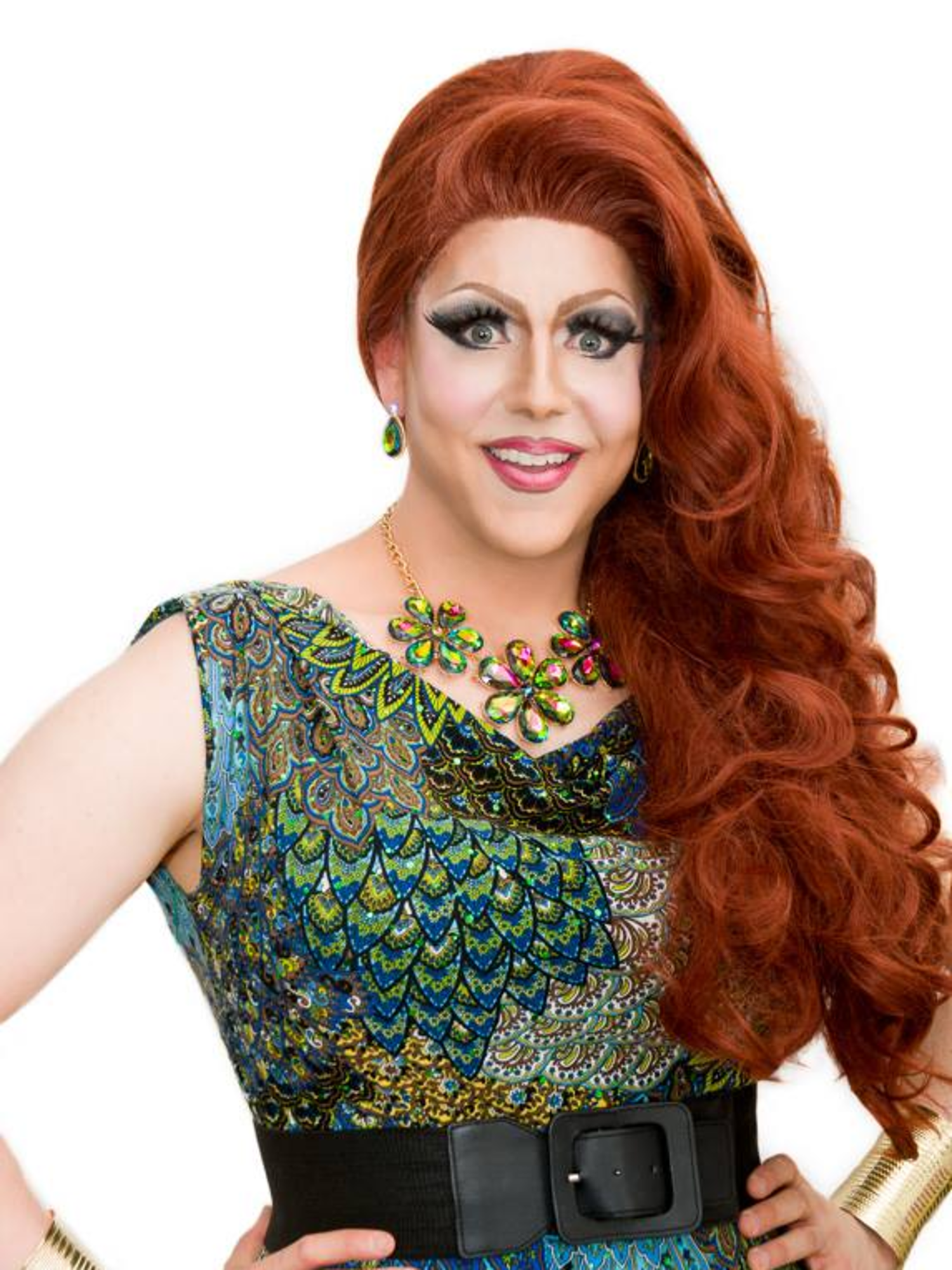 Honey LaBronx
Honey LaBronx
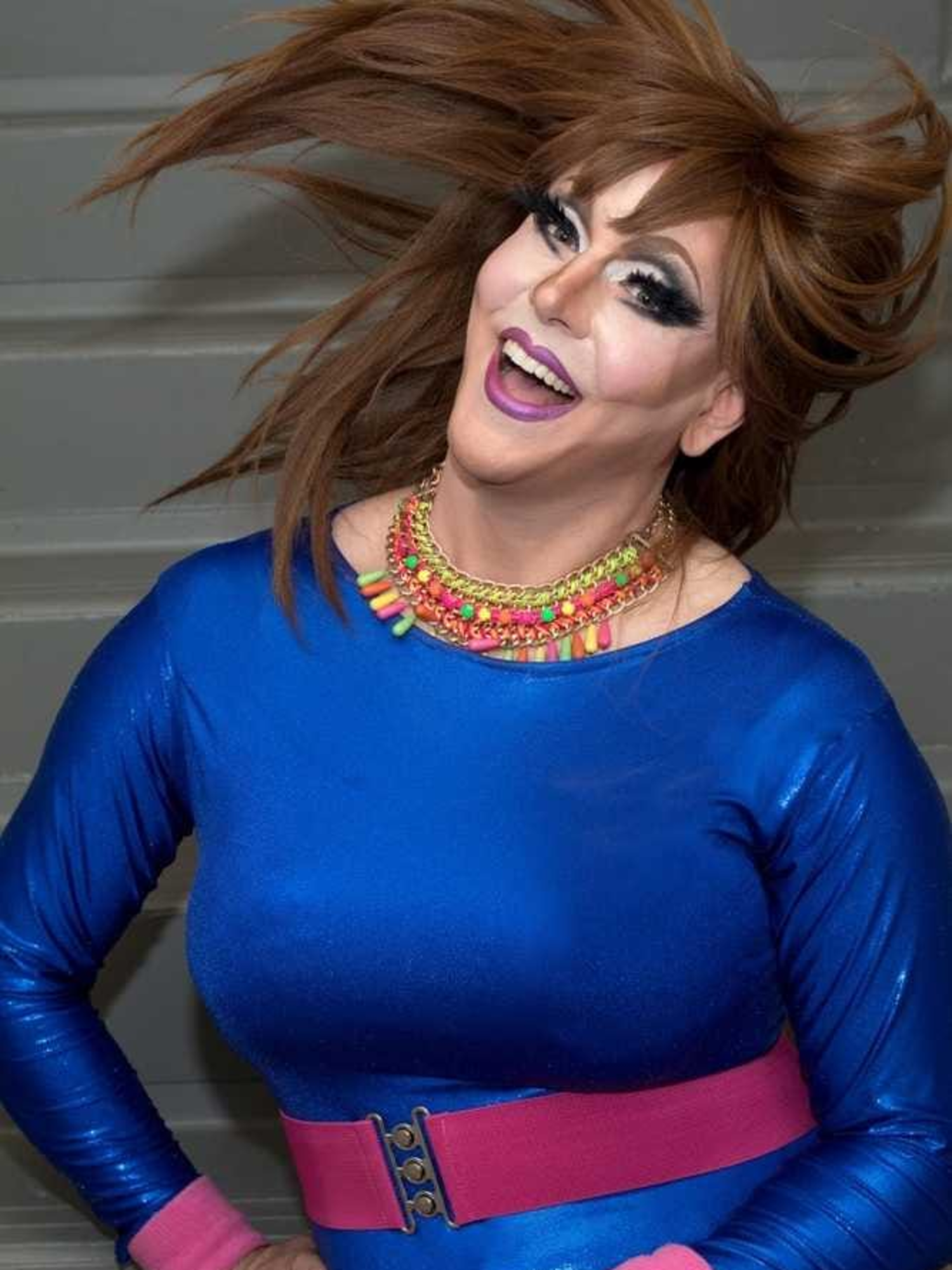 Honey LaBronx
Honey LaBronx
The next chapter
When he first came to New York, Ben was covering the local cabaret scene. When people learned that he sang, they suggested that he have this own show. Back then, he felt that he didn’t have enough of a world view, enough life experience, or enough of a statement to make.
Today, people wouldn’t believe that for a minute.
Being a Broadway actor doesn’t seem satisfying to him anymore. Coming on stage, eight times a week, to do this and that in a choreographed style, would no longer make him happy. However, taking an audience hostage, subjecting them to his volatile whims, and doing whatever he feels like doing onstage?
That’s the work he loves.
“I get to do whatever the hell I want,” said Ben. “I’m not bound by anyone or anything. This is the show, like it or leave it.”
Ben’s most recent venture has been Handy Homo NYC, a handyman service for gay men. As a kid, he learned a lot about electrical, plumbing, and other household fixes from his father. While he’s neither licensed nor insured, he promises his clients a “damn good handyman.”
“This is an untapped market,” said Ben. “When a handyman comes over, gay men can feel uncomfortable being alone with some macho, aggressive, possibly unfriendly dude. Wouldn’t you rather be with someone you can be yourself with? Someone you can talk naturally with. Someone you feel safe with. I’ve had a lot of female clients who felt the same way.”
“Ben Strothmann Photography had enough recognition for 20 years that everyone just knew to go to Ben Strothmann,” said Ben. “I never really advertised myself in any way other than word of mouth.”
“I really don’t know what my next move is going to be,” said Ben. “Am I going to get back on the road and continue doing my fundraiser shows? Am I going to pivot to 100% digital creator and resume my cooking show? I do want to make a vegan drag queen cookbook, which I’ve been working on for quite a while now. But I don’t really know what the next chapter will be, and when I start to think about it, I start to panic.”
“I have to remind myself that I’m doing what I love, and I can’t worry too much about where that’s taking me,” said Ben. “I’m sixteen years sober. I trust the process. I trust where I’m at."
"Let the future find me.”
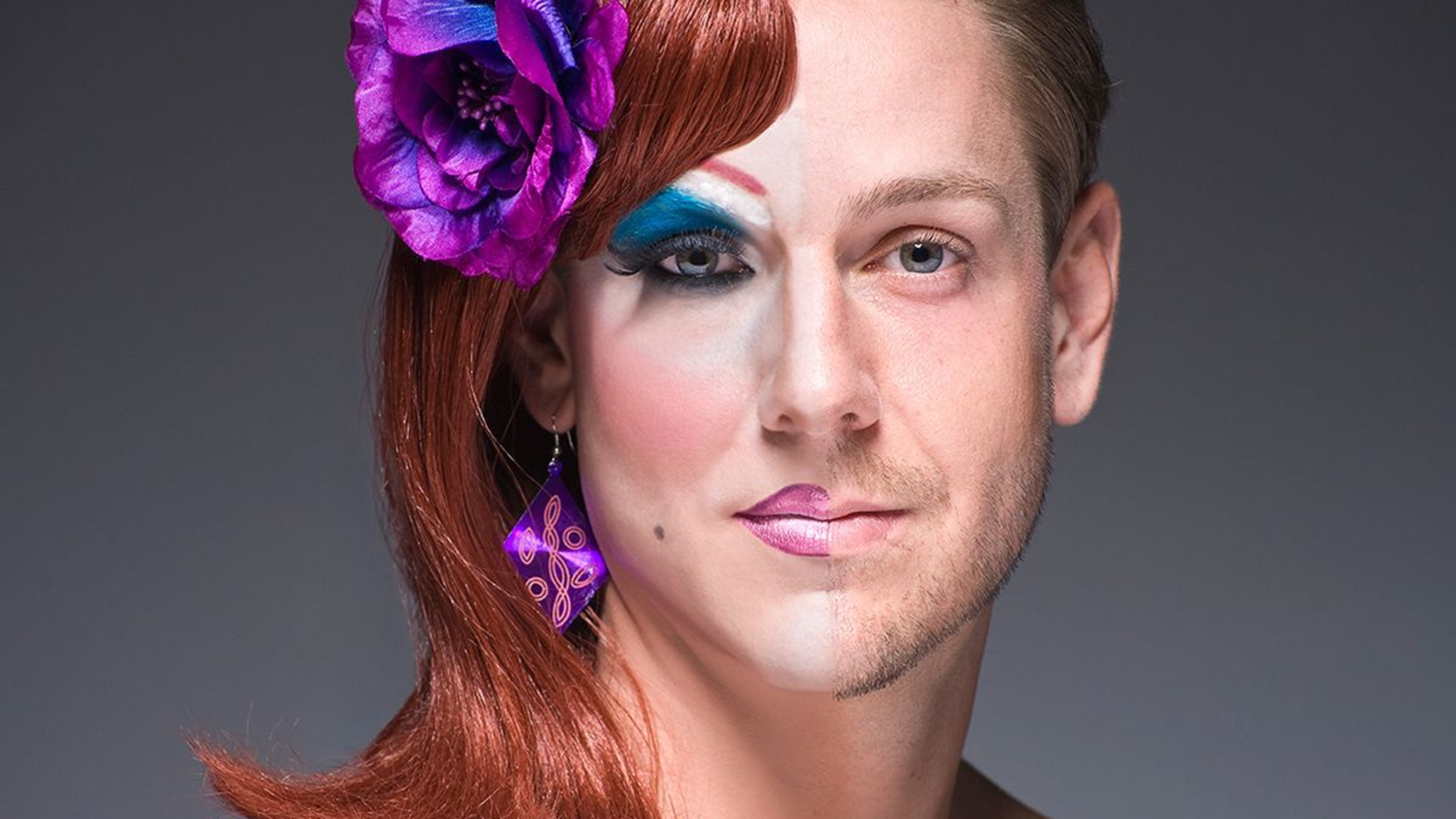 Honey LaBronx: the adventure continues
Honey LaBronx: the adventure continues
recent blog posts
December 17, 2025 | Michail Takach
December 16, 2025 | Michail Takach
December 01, 2025 | Dan Fons
The concept for this web site was envisioned by Don Schwamb in 2003, and over the next 15 years, he was the sole researcher, programmer and primary contributor, bearing all costs for hosting the web site personally.
